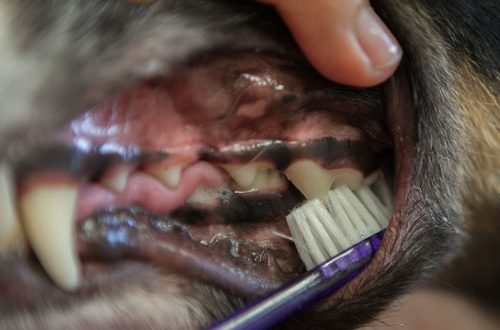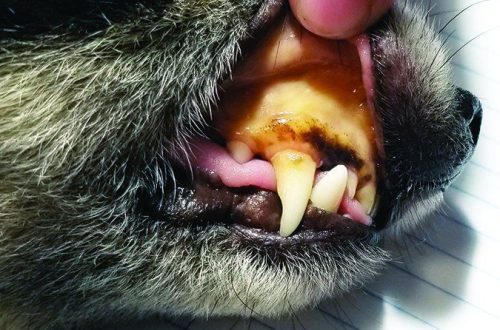
dog stress
They say that all diseases are caused by nerves, and it’s hard not to agree with that. Even when it’s not about people, but about pets. They are much more like us than we think. Just like us, our pets have the ability to worry, worry and be sad, and just like us, they are affected by stress. And our task with you – as responsible owners – is to help the pet survive a difficult period, so that it passes without consequences for its health. We will talk about how to do this in our article.
Stress is a change in the body at a psychological or physiological level in response to environmental influences. Such a reaction can be short-term or long-term – and even go into a chronic stage.
And if short-term stress does not pose a significant danger to the body, then frequent and prolonged stress significantly reduces the quality of life of the pet and the owner and can lead to disruption of the functioning of some organs. Therefore, it is desirable to avoid stress, and in which case – to be able to resist it.
Interestingly, many of the gaps in a dog’s behavior are often related to stress. A pet in a state of nervous overstrain can be hyperactive or, on the contrary, very lethargic. He can go to the toilet in the wrong places, whine loudly and obsessively, gnaw on household items and personal belongings of the household, and even show aggression. Thus, the dog is trying to deal with stress, and it cannot be punished for this.
Along with changes in behavior, signs of stress are refusal to eat and communicate, ignoring commands, weight loss during prolonged stress, loss of general tone, etc.
Symptoms of short-term stress, as a rule, disappear within a day, while long-term nervous overstrain leaves its mark on the pet’s behavior and well-being for a long time.
It is necessary to carefully monitor the condition of the pet. Often you can confuse stress with the pathology of the nervous system, problems of the urinary system, and so on. So, for example, urination in the wrong places can talk not only about stress, but also about inflammation of the bladder, increased urination, and so on. Therefore, if symptoms persist for more than 1-2 days or worsen, contact your veterinarian.
It is impossible to determine the causes of stress at once for all dogs. Each pet is an individual, and each has its own perception of environmental factors, its own level of stress tolerance. For example, if one dog is terribly afraid of traveling by train, then another can calmly endure moving, but be very nervous even from a short-term separation from the owner.

Most often, psychological factors, such as fear, loneliness, etc., lead to nervous strain. Physical factors (abrupt changes in diet, changes in living conditions, etc.) can also provoke stress, but this happens much less frequently.
The most common causes of stress in dogs include:
short term stress
– transportation (for example, to a veterinary clinic),
– Examination by a veterinarian
– bathing, grooming or other manipulations with the dog,
– noisy holiday / arrival of guests,
– “clarification of relations” with other dogs,
– loud noise: explosion of firecrackers, thunder, etc.
If the above points are repeated in a dog’s life often, this can lead to chronic stress. Also, long-term separation from the owner or a change of owner, the appearance of a new family member in the house – that is, leads to prolonged nervous overstrain. factors that are categorical and long lasting.
The main way to deal with stress is to eliminate its cause. If possible, of course. In cases where stress is caused by a change of owner and other similar changes in a dog’s life, attention and care will help her survive the stress. Give your pet more time, buy a variety of toys for him, take him for walks more often and do not forget about balanced feeding.
To reduce the burden on the nervous system and the degree of stress on the body, replenish your pet’s home first aid kit with a high-quality sedative drug for dogs. Your veterinarian will help you choose it. Some drugs are safe, some need to be taken with more caution, so you should not choose them yourself. They calm the dog, level its behavior and eliminate the symptoms of obsessive-compulsive disorders. Thanks to these drugs, stress prevention is also provided.
If you have planned a trip, a noisy holiday is approaching, and in other situations that may cause stress for your pet, start giving the dog the drug in advance. It will help prepare the nervous system for an “emergency” situation and eliminate hyperexcitability.
Sometimes there are cases when the fight against stress is impossible without the intervention of a veterinarian and other specialists. Usually, in this case, we are talking about phobias that the owner cannot cope with on his own. To eliminate a phobia, the teamwork of several people will be required: a veterinarian, a zoopsychologist, a trainer and, of course, the owner of the dog, who will be the main support and support for her.

Take care of your four-legged friends. We wish that in your life all the excitement was only pleasant!





